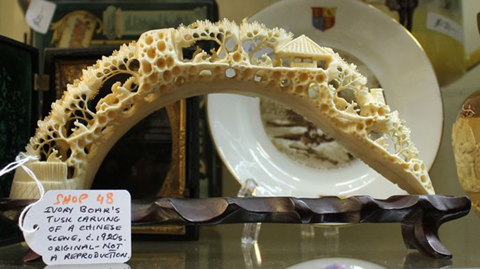I Ching, Yijing or Zhou Yi
"Oracle of the moon": © 2000 LiSe
 Yi Jing, Oracle of the Moon
Yi Jing, Oracle of the Moon


The tusks of a gelded boar
Hexagram 26 is about sacrifices to the ancestors. Probably also about showing your worth to the living.
The ancestors don't care about tangible things. Papermoney or the vapor of a roasting lamb replace the real money and the real meal. Important is, that the offering is beautiful and worthy.
The ancestors don't care about tangible things. Papermoney or the vapor of a roasting lamb replace the real money and the real meal. Important is, that the offering is beautiful and worthy.
So the bull has
to be perfect and big, the wine has to be best quality, the sheep fat and beautiful. That it will be eaten by the people who bring the offering is not a problem.
Boars are fierce animals, in their life they suffer damage because they fight or rage around. Except if they are castrated, then they are manageable.
Boars are fierce animals, in their life they suffer damage because they fight or rage around. Except if they are castrated, then they are manageable.

A Chinese carved boar's tusk, 1920.
When they don't get the chance to use their tusks for eating or fighting, the tusks grow longer and longer. Long and curved tusks were a prime offering. The upper ones were removed, so the lower ones grew in a circle, sometimes even several circles.
Poor pig, it was agony, the tusks often grew back into its face, and eating was very difficult, so it stayed skinny. But its meat was not important, only the tusks.
The tusks were symbols of the moon crescent.
The tusks were symbols of the moon crescent.
The number of these tusks a man could offer in the course of his life decided about his welcome and status in the afterworld.